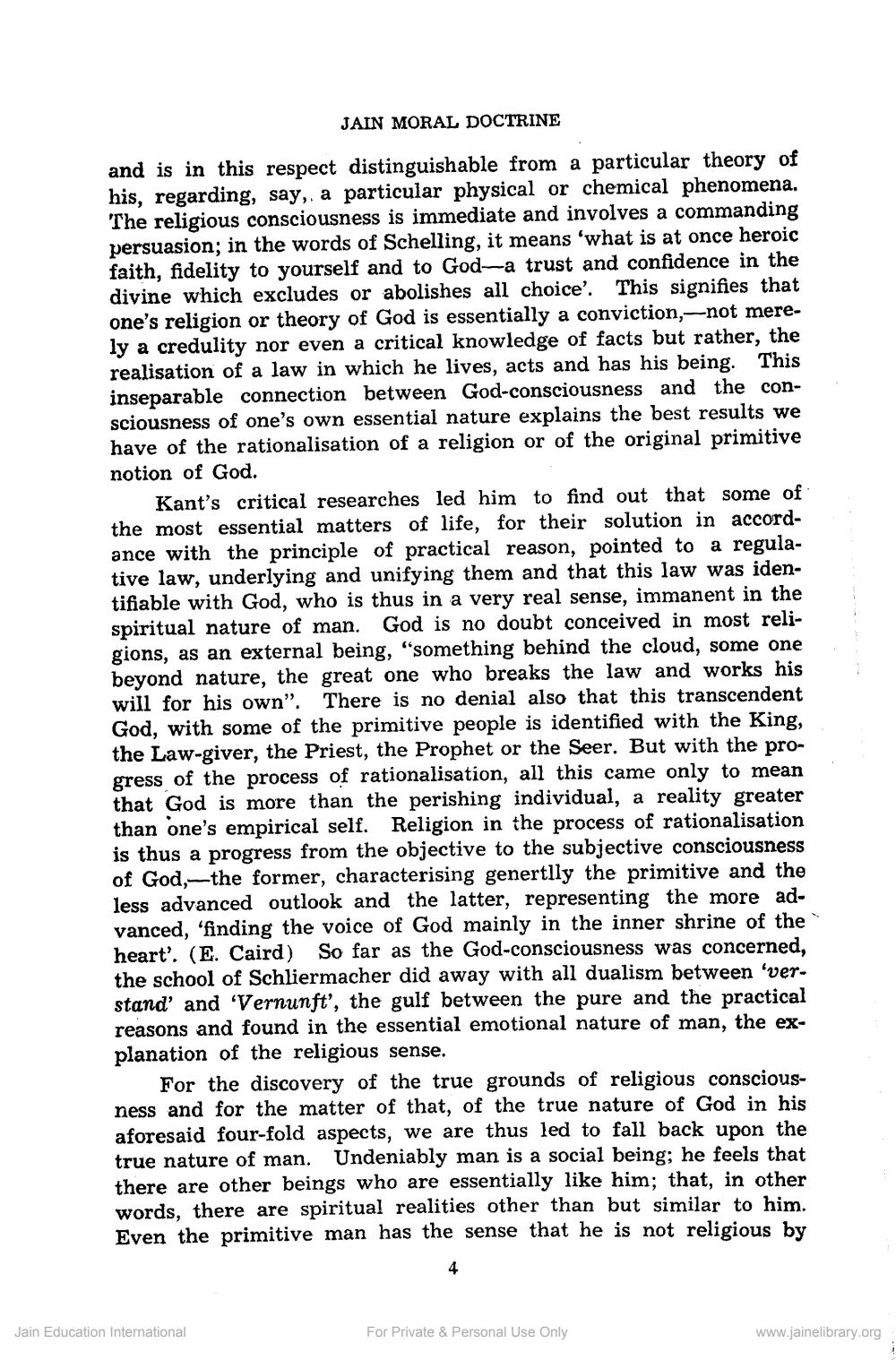________________
JAIN MORAL DOCTRINE
and is in this respect distinguishable from a particular theory of his, regarding, say, a particular physical or chemical phenomena. The religious consciousness is immediate and involves a commanding persuasion; in the words of Schelling, it means 'what is at once heroic faith, fidelity to yourself and to God a trust and confidence in the divine which excludes or abolishes all choice'. This signifies that one's religion or theory of God is essentially a conviction,-not merely a credulity nor even a critical knowledge of facts but rather, the realisation of a law in which he lives, acts and has his being. This inseparable connection between God-consciousness and the consciousness of one's own essential nature explains the best results we have of the rationalisation of a religion or of the original primitive notion of God.
Kant's critical researches led him to find out that some of the most essential matters of life, for their solution in accordance with the principle of practical reason, pointed to a regulative law, underlying and unifying them and that this law was identifiable with God, who is thus in a very real sense, immanent in the spiritual nature of man. God is no doubt conceived in most religions, as an external being, "something behind the cloud, some one beyond nature, the great one who breaks the law and works his will for his own". There is no denial also that this transcendent God, with some of the primitive people is identified with the King, the Law-giver, the Priest, the Prophet or the Seer. But with the progress of the process of rationalisation, all this came only to mean that God is more than the perishing individual, a reality greater than one's empirical self. Religion in the process of rationalisation is thus a progress from the objective to the subjective consciousness of God, the former, characterising genertlly the primitive and the less advanced outlook and the latter, representing the more advanced, 'finding the voice of God mainly in the inner shrine of the heart. (E. Caird) So far as the God-consciousness was concerned, the school of Schliermacher did away with all dualism between 'ver. stand' and 'Vernunft', the gulf between the pure and the practical reasons and found in the essential emotional nature of man, the explanation of the religious sense.
For the discovery of the true grounds of religious consciousness and for the matter of that, of the true nature of God in his aforesaid four-fold aspects, we are thus led to fall back upon the true nature of man. Undeniably man is a social being; he feels that here are other beings who are essentially like him; that, in other words, there are spiritual realities other than but similar to him. Even the primitive man has the sense that he is not religious by
Jain Education International
For Private & Personal Use Only
www.jainelibrary.org




